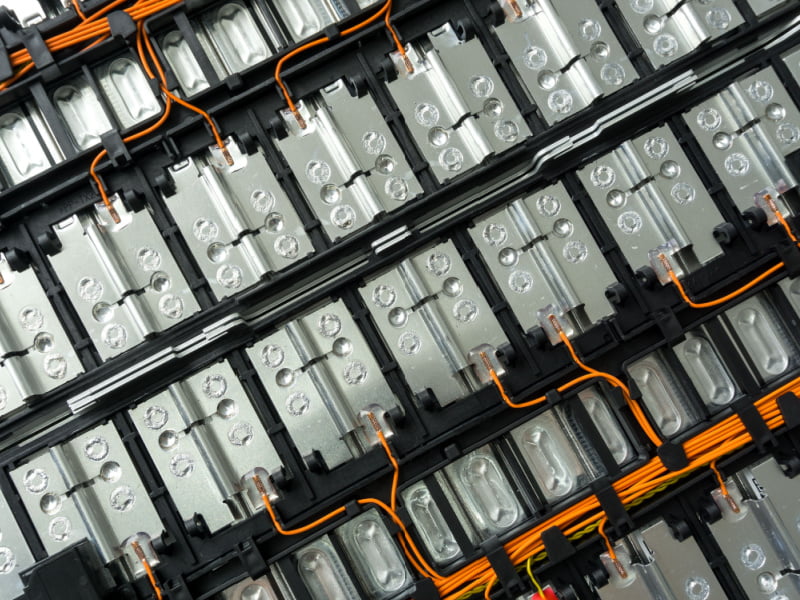Australian battery industry stakeholders have rejected the Productivity Commission’s doubts on the effectiveness of industry support, with one innovation expert describing it’s claims as “tiresomely predictable”.
Released on Thursday, the Productivity Commission’s (PC) report argued that if the United States’ Inflation Reduction Act was successful in driving rapid growth in its battery industry, it would be less likely that Australia could develop an “economically efficient battery industry”.
It also suggested that if the Commonwealth invests in battery cell manufacturing, “the cost of that support may outweigh the benefits for GDP and economic growth”.
This has been criticised by the battery industry – which backs government’s support for the sector – for ignoring contemporary industry development lessons and energy security concerns. The report was also criticised for failing to consider the full value chain in the battery industry.
As consultation on the forthcoming National Battery Strategy began earlier this year, Industry and Science minister Ed Husic said the government’s attitude was that “if we mine it here, we should make it here”.

The report’s author and deputy chair of the Productivity Commission Dr Alex Robson also published an opinion piece in the Australian Financial Review arguing against large industry development support packages, urging the government to “maintain the free trade rage”.
Australia is the world’s largest producer of lithium, the third largest producer of cobalt, and the fourth largest producer of rare earths. Global demand for critical minerals is expected to increase by 3.5 times by 2030, according to the International Energy Agency.
According to a report commissioned by the Future Battery Industries Cooperative Research Centre (FBICRC), global demand for batteries is expected to grow by 18 times between 2020 and 2030.
A diversified battery industry including downstream processing and component manufacturing, could add $16.9 billion in gross value-add to the Australian economy by 2030.
FBICRC chief executive officer Shannon O’Rourke took to LinkedIn to decry “free trade at all costs”, stating the report highlights the need for a “broader, strategic conversation on trade and productivity”.
“To improve our productivity, we must create ‘competitive’ advantages through sustained, focused investment. Australia’s services industry thrives, in part, because of Australia’s sustained investment in education. China’s dominant critical minerals industries were created through similar sustained investment,” Mr O’Rourke said.
Even if industry development support makes a country poorer temporarily, not investing while other countries do would make “Australia poorer permanently”, he added.
A spokesperson for NSW-based Magnis Energy, also argued for the importance of assuring energy security, highlighting that China produces around “70 per cent of the world’s natural graphite, a key Li-ion battery Active Anode Material”.
Magnis owns a 61 per cent share in a New York battery production facility and is exploring options for an Australian gigafactory. Its plans to develop a facility in Townsville were scuppered after the local council revoked the original land allocation to pivot towards hydrogen production.
“As the EU and US have identified through their policies and actions, an investment in local capabilities is about energy security and forecasting energy requirements for the 21st and 22nd Centuries,” they said.
Mr O’Rourke noted that “creating the right policy settings to counter protectionist moves by others isn’t being “greedy”, it’s just being smart”. He told InnovationAus.com that Australia’s large reserves of critical minerals make it a “king-maker”.
“Our production has a material global impact. By differentiating how we respond to international partners, we can encourage deals that achieve mutual benefits,” he told InnovationAus.com
This includes the Australia-US Critical Minerals and Clean Energy Transformation Compact, which aims to deepen collaboration on critical minerals projects, including those relating to the Inflation Reduction Act.
Battery materials firm Lithium Australia’s chief executive Simon Linge flagged that while he doesn’t believe Australia will be a “global battery maker” for electric passenger vehicles, there is an opportunity for a viable battery industry for storage and other electric vehicles that the government should support.
Both Mr O’Rourke and Mr Linge highlighted that the PC’s focus on just battery cell manufacturing ignores the breadth of the battery value chain, such as mineral processing, refining, materials, components, systems, integration, and recycling.
University of Technology Sydney special innovation advisor Emeritus Professor Roy Green described the report as “another tiresomely predictable and formulaic report from the Productivity Commission”.
He argued that government support to diversify “Australia’s narrow resource-based industrial structure” are among the “very policy measures most likely to grow productivity”.
“Right now Australia produces 50 per cent of the world’s lithium but captures only 0.53 per cent of its final value. By insisting that Australia remains a quarry on the basis of an outdated theory of comparative advantage, the PC would deny the opportunity for this country to gain competitive advantage from its critical minerals through the development of a value adding battery manufacturing industry,” he said.
“Meanwhile they are comfortable with perpetuation of the Diesel Fuel Tax Rebate, which at $7.9 billion a year (for large, mostly foreign-owned mining companies) is equivalent to three quarters of the entire Commonwealth spend on research and innovation.
“For how long does the Australian taxpayer have to fund this destructive monopoly source of economic advice?”
In January, Treasurer Jim Chalmers was reported, by the Australian Financial Review, to be months into work on proposing reforms to the Productivity Commission.







